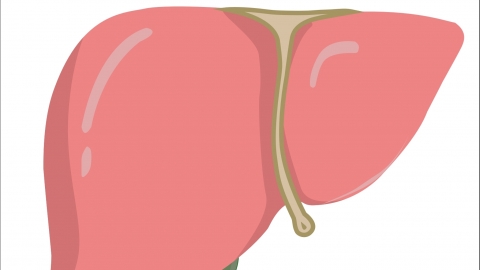What causes elevated levels of glycocholic acid and total bile acids?
In general, elevated levels of glycocholic acid and total bile acids may be caused by dietary stimulation, physiological changes during pregnancy, hepatitis, biliary obstruction, cirrhosis, and other factors. Symptomatic management through general treatment and medication may be necessary. If experiencing any discomfort, it is recommended to seek timely medical attention and undergo appropriate treatment under a physician's guidance. Detailed explanations are as follows:

1. Dietary Stimulation
Unhealthy dietary habits, such as frequently consuming large amounts of high-fat foods, can increase the metabolic burden on the liver and affect the metabolism of glycocholic acid and bile acids, leading to their accumulation and elevation in the body. It is recommended to adjust the diet, reduce intake of high-fat foods, and increase consumption of vegetables, fruits, and other foods rich in vitamins and dietary fiber.
2. Physiological Changes During Pregnancy
During pregnancy, significant hormonal changes occur in a woman's body, including a substantial increase in estrogen levels. Estrogen inhibits the liver's uptake of glycocholic acid and alters bile acid metabolism, resulting in elevated glycocholic acid levels. Pregnant women may experience symptoms such as skin itching and jaundice. This is a normal physiological phenomenon that typically returns to normal gradually after childbirth.
3. Hepatitis
Hepatitis may be caused by infections such as viruses or bacteria. During hepatitis, liver cell damage leads to abnormal bile acid synthesis and excretion, causing elevated levels of glycocholic acid and total bile acids. Symptoms such as nausea, vomiting, and loss of appetite may also occur. It is recommended to follow a physician's guidance and use medications such as azathioprine tablets, bicyclol tablets, and recombinant human interferon α2b injection for treatment.
4. Biliary Obstruction
Conditions such as bile duct stones or bile duct narrowing can cause obstruction of bile excretion, leading to the accumulation of glycocholic acid and total bile acids in the blood and elevated levels. Symptoms such as right upper abdominal pain, jaundice, and fever may also occur. It is recommended to follow a physician's guidance and use medications such as Qinggan Lidan oral solution, Xiaoyan Lidan tablets, and ursodeoxycholic acid tablets for treatment.
5. Cirrhosis
Viral hepatitis, long-term excessive alcohol consumption, and other factors can cause cirrhosis. Patients with cirrhosis experience impaired liver function and disorders in bile acid synthesis and excretion, which can lead to elevated levels of glycocholic acid and total bile acids. Symptoms such as fatigue, ascites, and splenomegaly may also occur. It is recommended to follow a physician's guidance and use medications such as furosemide injection, bumetanide tablets, and Anluohuaxian pills for treatment.
It is recommended to engage in appropriate physical activity in daily life, such as walking or yoga, which can help promote metabolism and maintain overall health.




